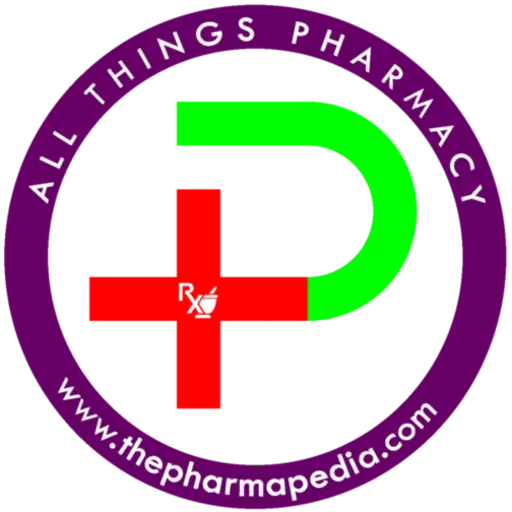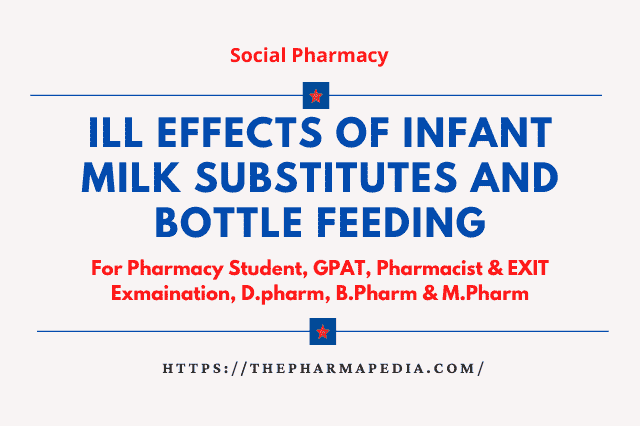FORMULA FEEDING (infant milk substitutes)
Commercially prepared infant formulas are a nutritious alternative to breast milk, and contain some vitamins and nutrients that breastfed babies need to get from supplements.
Under sterile conditions, commercial formulas feeding are made duplicate mother’s milk using a complex combination of proteins, sugars, fats, and vitamins.
Due to personal comfort, latch in pain, any Maternal medical conditions, medicines (that passes to baby via breast milk), and breast surgery, Medical conditions (HIV or AID, chemotherapy) etc, mother can choose formula feeding to feed baby.
Drawback of formula feeding
1. Lack of antibodies
None of the antibodies found in breast milk are in manufactured formula. So formula can’t provide a baby with the added protection against infection and illness that breast milk does.
2. Can’t match the complexity of breast milk
Manufactured formulas have yet to duplicate the complexity of breast milk, but not able to manufacturer of exact composition of breast milk.
3. Expensive
Parents must buy formula and make sure it’s always on hand to avoid late-night runs to the store.
And it’s important to always have the necessary supplies (like bottles and nipples) clean, easily accessible.
4. Making a Choice
Many women decide on one method before the birth and then change their minds after their baby is born. And many women decide to breastfeed and supplement with formula because they find that is the best choice for their family and their lifestyle.
BOTTLE FEEDING
Bottle feeding is an alternative to breastfeeding.
In order to feed her child, the mother may opt for formula feeding due to personal comfort, latch discomfort, any maternal medical conditions, medications (that are passed on to the baby through breast milk), breast surgery, medical conditions HIV or AID, chemotherapy, etc can choose to bottle-feed their babies.
Advantage of BOTTLE Feeding
- 1. Anyone can feed the infant.
- 2. You can do it in public.
- 3. It’s simple to keep track of your baby’s intake.
- 4. Meets milk needs when there is insufficient supply of breast milk
- 5. Useful in the lactose allergy
- 6. If your mother becomes ill or under chemotherapy
Disadvantage of BOTTLE Feeding
- Breast milk is more nutrient-dense than formula milk.
- It takes time and effort to get the milk ready for bottle feeding.
- Equipment for bottle feeding is an additional expense.
- Your child’s immune system could be weakened by bottle-feeding.
- The mother-baby relationship is impacted.
- Bottle feeding may be a hassle.
- Mothers who breastfeed remain healthy.
- It’s possible that your baby won’t like formula.
ILL EFFECTS OF INFANT MILK SUBSTITUTES AND BOTTLE FEEDING
Infant feeding is an important for both mothers and infants. Many health organizations recommend exclusive breastfeeding for the first 6 months of life, continuing at least through the infant’s first birthday, and as long thereafter as is mutually desired. The World Health Organization (WHO) recommends at least 2 years of breastfeeding for all infants.
For infants (who get infant milk substitute & Bottle feeding) is associated with an increased incidence of the infectious morbidity, including
- Otitis media
- Gastroenteritis
- Pneumonia
- Elevated risks of childhood obesity
- Type 1 and type 2 diabetes,
- Leukemia,
- Sudden infant death syndrome (sids).
- Risk of necrotizing enterocolitis (nec) (among premature infants, not receiving breast milk is associated with an increased)
| S. No. | health risks associated with No Breastfeeding |
| 1 | Acute ear infection (otitis media) |
| 2 | Eczema (atopic dermatitis) |
| 3 | Diarrhea and vomiting (gastrointestinal infection) |
| 4 | Hospitalization for lower respiratory tract diseases in the first year |
| 5 | Asthma, with family history |
| 6 | Asthma, no family history |
| 7 | Childhood obesity |
| 8 | Type 2 diabetes mellitus |
| 9 | Acute lymphocytic leukemia |
| 10 | Acute myelogenous leukemia |
| 11 | Sudden infant death syndrome |
RISKS OF NOT BREASTFEEDING FOR MOTHERS
- Women who do not breastfeed face higher risk of
- Breast cancer and ovarian cancer,
- Obesity,
- Type 2 diabetes,
- Metabolic syndrome,
- Cardiovascular disease.
Ill effects of infant milk substitutes and bottle feeding.pdf
Also Read…
Mother and child health & Importance of breast feeding
Join WhatsApp channel to get latest Job notification, Study material, Previous paper, MCQ quiz, Admission alerts & News etc. for Pharmacy aspirants.
Subscribe our Telegram channel for Pharmacy Notes, MCQ Quiz, , Previous paper, Admission alerts & News etc. for Pharmacy professionals.
Join Telegram group for all Pharmacy books, Pharmacopoeia (IP, USP, BP), Pharmacy Notes, Previous Year Question papers in pdf format.










